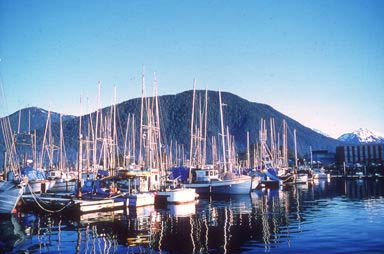Ocean acidification threatens Alaska fisheries
UNALASKA, AK (kucb) – The cold waters and currents of the North Pacific Ocean make the ecosystems around the Aleutians more susceptible to ocean acidification. Brad Warren with the Sustainable Fisheries Partnership spoke about the issue at the Western Alaska Interdisciplinary Science Conference Thursday. “It’s a cross cutting threat to food webs that support fisheries. It affects the physiologies of many species in the marine system – gill function, reproduction, growth rates, blood chemistry, heart functions. The primary cause of death for fish exposed to high CO2 is heart attacks. It’s really a wide band of effectors of harm.” Ocean acidification is caused by rising carbon dioxide levels in the atmosphere. It’s absorbed into the ocean, which creates carbonic acid. That acid increases the pH of the ocean waters. The most obvious and best understood problem is its affect on calcification of shells. Warren said the acid corrodes the shells of large species, like crabs and oysters, but also the shells of smaller organisms that are important links in the food web. “Many of the things that fish eat are experiencing conditions that may be fatal to them, particularly at early life stages,” he explained. “If that’s persistent for long enough, it’s likely to cause recruitment problems in fisheries. Whether it has already caused them, no one knows. There’s not enough information.” Preliminary research in the Bering Sea shows corrosive acid in all levels of the water column. Warren said it’s unclear if the acidification is already causing problems, like the smaller fish some fishermen are reporting. This could be caused by many things there isn’t enough research to say yet. But Warren said it’s important to stop the acidification and monitor its levels and effects on the ecosystem before it becomes a huge problem, because it’s not something that can be fixed. “This is a change that takes geologic time to correct itself. There is no system for accelerating the ocean’s return to a normal pH balance. And that balance is critical for much of the life support system for the fisheries that we depend upon.” Warren said that unlike thermal change, which could bring new species to the area, acidification could make the ocean inhospitable to all species. “This is fundamentally reducing the ocean’s ability to make commercially harvestable quantities of the things we eat.” …

The article has a mistake.
It says that more carbonic acid caused by the dissolved carbon dioxide "increases the pH", but it decreases it.